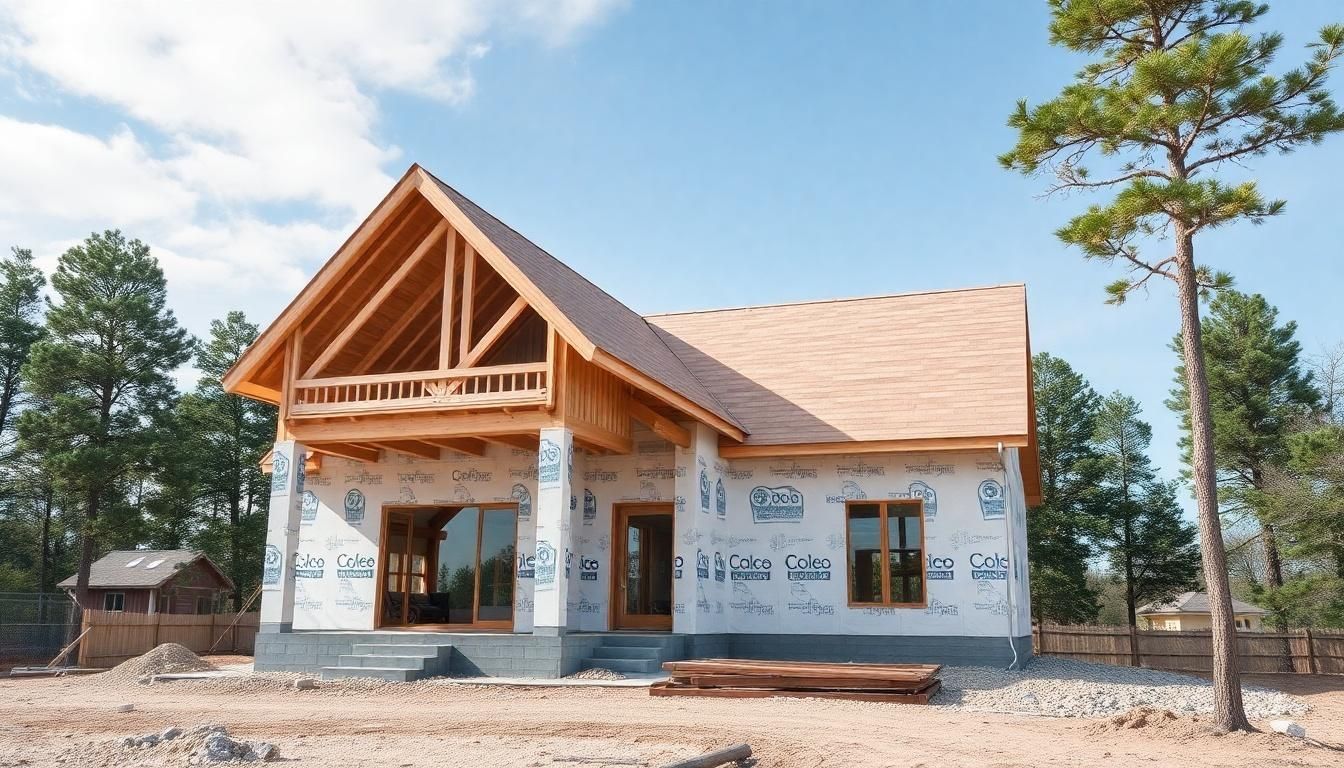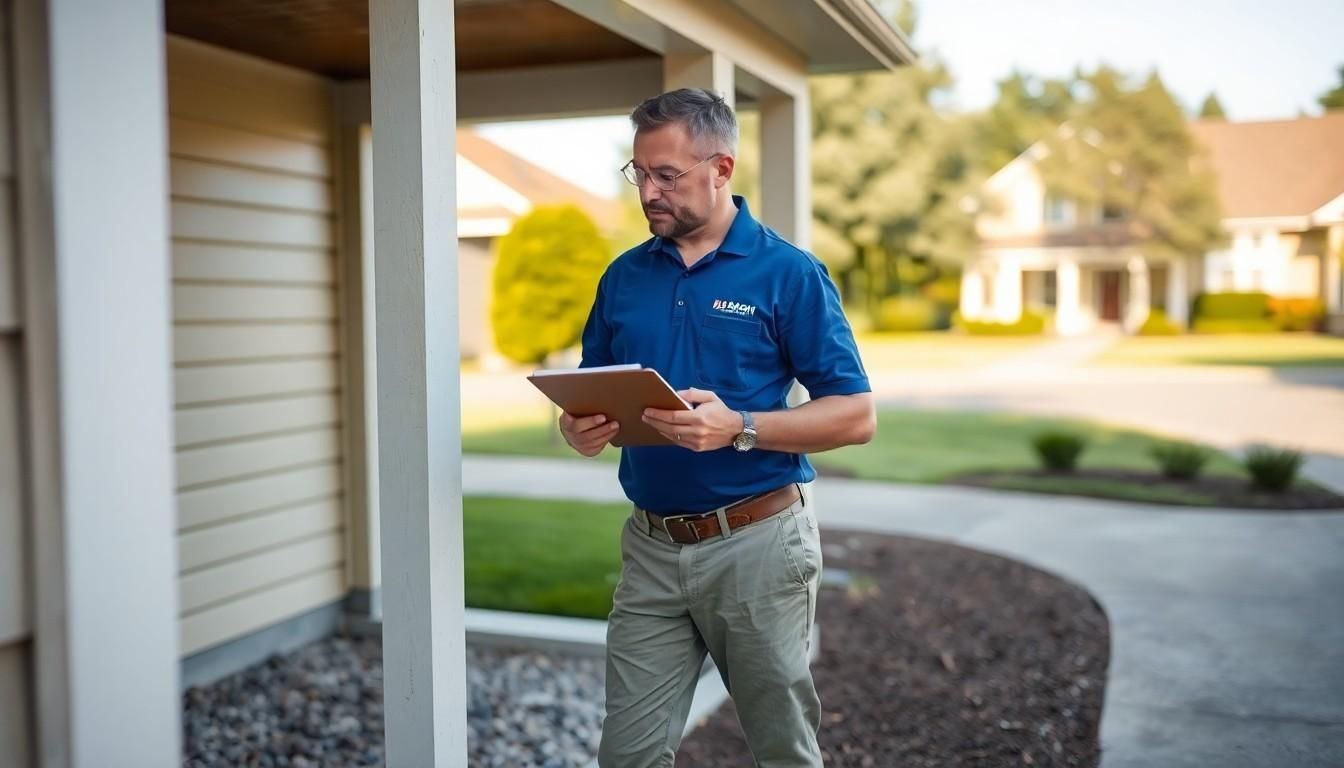Step-by-Step Guide to Home Inspection Success
- Home inspections protect buyers by revealing property issues before closing.
- Inspectors check: roof, foundation, plumbing, electrical, HVAC systems.
- Buyer's presence is crucial for understanding the inspection.
- Pre-inspection preparations: confirm details, review property, ensure access, prepare questions.
- Inspection reports highlight major and minor issues; prioritize repairs based on severity.
- Negotiation strategies: communicate clearly about significant issues or defects.
- Options: proceed with purchase, negotiate repairs, withdraw offer if issues are severe.
A missed flaw in your future dream home could turn into a costly nightmare, but navigating the complexities of the home inspection process might feel like decoding a mysterious language, yet it plays a critical role in safeguarding your investment. This step-by-step guide to home inspection success aims to demystify the inspection process, providing property owners with the knowledge to ensure safety, efficiency, and compliance. Read on to unlock insights that could save your time and money.
Understanding the Home Inspection Process
A home inspection plays a key role in the real estate transaction. It acts as a safety net in the purchase agreement, giving potential buyers a clear view of the property’s condition before closing the deal. The main goal is to spot any problems that might impact the property’s value or safety. Finding these issues early helps buyers make informed choices, negotiate repairs, or even retract their offer if necessary. This step ensures investment protection and transparency between buyers and sellers.
Inspections last about two to four hours, during which the inspector thoroughly examines major systems and structures. This examination can reveal hidden problems, saving buyers from expensive repairs later on.
During a home inspection, several vital components are carefully checked. Inspectors concentrate on key areas that can affect the property's safety and stability. These main areas include:
- Roof
- Foundation
- Plumbing
- Electrical systems
- Heating and cooling systems
By assessing these components, inspectors can spot issues like structural damage, leaks, wiring problems, and HVAC inefficiencies. This analysis offers buyers a full view of the property’s condition, allowing them to proceed confidently.
Preparing for a Home Inspection

Being present during the home inspection is critical for buyers. Why? It gives a chance to interact directly with the inspector, ask questions, and understand the property's condition better. Watching the inspection live allows buyers to address concerns and clarify findings not apparent from the report alone. Active involvement shapes decision-making by highlighting repair and maintenance needs.
Before inspection day, some tasks can make the process smoother. Checking the property's location is crucial to ensure it suits your lifestyle and expectations. Reviewing the neighborhood at different times helps assess traffic, noise, and amenities. Ensure open access to all crucial areas, like attics and basements, for the inspection. Preparing a list of questions for the inspector also aids in addressing specific concerns efficiently.
Key Components Assessed During a Home Inspection
1. Structural Assessment
Why is evaluating a property's structure important? Structural integrity is vital for safety and longevity. Inspectors examine the foundation and framing to find cracks, shifting, or settlement, which could harm stability. Detecting structural damage early helps prioritize repairs, maintaining the property's value and safety.
2. Plumbing Inspection Details
Inspectors check for leaks, water pressure, and plumbing functionality. Leaks can cause water damage and mold, posing health risks and expensive repairs. Inspectors also check pipes, faucets, and fixtures, ensuring safety standards and efficiency. This thorough check helps owners avoid surprise repairs and keeps living environments safe and healthy.
3. Electrical Systems Check
How is electrical safety assessed? Inspectors look at wiring, outlets, and circuit breakers, checking for any faults or outdated components that could be dangerous. Proper electrical evaluations prevent fire risks and ensure infrastructure supports modern needs, enhancing safety and efficiency.
4. HVAC System Evaluation
Inspectors check if heating, ventilation, and air conditioning systems run efficiently and meet safety standards. They look for wear, leaks, or poor installation affecting performance. An efficient HVAC system is key for good air quality and comfort. Early issue detection prevents repairs and keeps systems energy-efficient and reliable.
How to Handle Inspection Findings
An inspection report provides a complete view of the property's condition, marking both major and minor issues. Understanding it helps set repair priorities, focusing on safety-impacting defects or costly issues like foundational cracks or electrical hazards. Reports often have photos and details that clarify severity and urgency.
Effective negotiation relies on clear communication and understanding inspection details. Buyers should focus on pressing issues from the report, like outdated systems or leaks. Present them with supporting inspection info and propose solutions like repairs or a price cut reflecting costs. Negotiations typically involve compromise, with sellers addressing critical repairs, while buyers may overlook minor issues.
When to proceed or reconsider the purchase based on significant issues?
This depends on severity and cost impacts of findings. If repairable or within budget, continuing is viable. If serious, posing risks or extensive work, withdrawing may be wise. Buyers should weigh financial impact and convenience of fixing major defects before deciding.
Final Words
Understanding the home inspection process is crucial for navigating real estate transactions effectively.
From assessing structural integrity to evaluating HVAC systems, a comprehensive inspection highlights potential issues, safeguarding investments and ensuring regulatory compliance.
A step-by-step guide to the home inspection process empowers property owners to address these concerns proactively, enhancing value and peace of mind.
FAQ
What is the biggest red flag in a home inspection?
The biggest red flag in a home inspection is often structural issues, such as cracks in the foundation, which can significantly impact property value and safety.
What happens during the inspection process?
During the inspection process, a licensed inspector evaluates major aspects of the property, including the roof, foundation, plumbing, electrical systems, and heating and cooling systems, to identify any potential issues.
What is the checklist of inspection?
An inspection checklist typically includes assessing the roof, foundation, plumbing, electrical systems, and heating and cooling systems to ensure the property's condition and safety.
What are the five steps involved in planning an inspection?
The five steps in planning an inspection involve confirming the inspection appointment, reviewing property location, ensuring access to all areas, compiling questions for the inspector, and verifying utility functionality.











